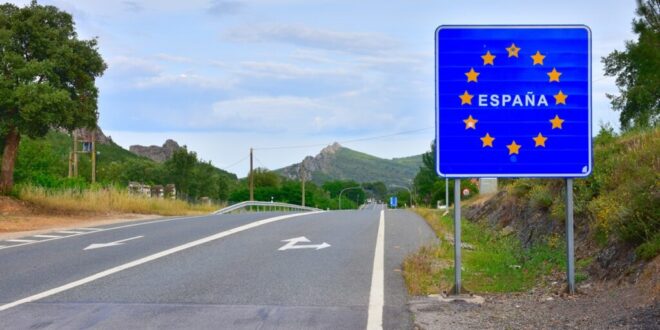Driving in Spain by 2025? New road rules mean it pays to be prepared—whether you’re a local or just passing through.
Credit : Sergio Reis, Shutterstock
There are new traffic rules that will be in effect for 2025, and if you don’t follow them, you could find yourself out of pocket.
The Directorate-General for Traffic in Spain (DGT), has released a number of updates to make roads safer, reduce pollution and assist emergency crews with their jobs faster.
From tougher drink-driving limits to stricter gear rules for bikers and a clampdown on overtaking in bad weather, here’s your essential guide to what’s changed—and how to keep your licence (and your wallet) safe this summer.
You could be fined for overtaking, drinking alcohol and using emergency lanes
No more dangerous overtaking
Spain has taken a strong stance on overtaking when conditions are dangerous. If there’s snow, ice, or heavy rain on a multi-lane road outside of town, forget about overtaking—just keep right and steer clear of risky moves. The goal is to avoid accidents and ensure that ambulances are able to get through during a crisis.
Make space for emergencies
Have you ever wondered what to make of a traffic jam on an autobahn? It’s now the law that a central “emergency pathway” be created. If you are on the left side, move to the left. Everyone else, move right. Leave that middle lane clear for police, ambulances, and fire engines—especially handy during summer getaways when traffic jams are all too common.
Motorcycles: New kit and good news for you
You can now use the hard shoulder if you are on two wheels (but not more than 30km/h and you must always give way for emergency vehicles). But don’t forget: new kit rules mean you’ll need full gloves, a certified helmet (full-face or modular), and proper shoes—flip-flops are definitely out.
No more easy rides to drink-drivers
Spain has slashed its blood alcohol limit to 0.2g/l—basically, a single drink could put you over the edge. This limit aligns with the strictest regulations in Europe, and is intended to reduce alcohol-related crashes that are common during summer festivals.
New urban rules include scooters, zones with low emissions, and fines.
Electric scooters are the focus
Do you like to zoom around in a scooter or moped? Rules have been tightened. You’ll need to be 16 or over, wear a proper helmet, and stick to the road—pavements are out. In many cities, your scooter must be registered. Anyone who breaks the rules will be fined.
Low-Emission Zones: There are no exceptions
Spain’s big cities—think Madrid, Barcelona, Valencia, Seville—now all have strict Low Emission Zones (LEZs). This means that older, more polluting vehicles are prohibited from the city centre, including foreign cars. You may need to register if you are coming from outside the country.
Avoid fines and penalties
Minor slip-ups like forgetting your helmet or overtaking when you shouldn’t can set you back €100–€200. More serious offences, such as drink-driving or entering an LEZ without the right sticker, can mean €600 fines and points off your licence. You’ll have to pay immediately or shortly after if you don’t live in the area.
What foreigners need to know about Spanish roads before they drive on them
There’s more paperwork if you are just visiting or staying here for a long time with a non Spanish car. Check if an International Driving Permit is required (especially if your country of origin is outside the EU/EEA). You must have insurance that covers you in Spain. If your insurer demands one, you may need to obtain a “Green Card”. Foreign-plated cars can’t be used indefinitely by residents—eventually, you’ll need Spanish plates.
You too are subject to LEZs. In most major cities, foreign vehicles must be registered before they can enter restricted zones. The fines for noncompliance are enforced by law across borders. Ignoring them will only cause bigger problems.
The summer of 2025 will be busy on Spanish roads. With these new rules in place, there is no excuse to get caught out. Keep up with the latest rules, whether you’re a native or a guest, to enjoy a relaxing and safe summer at the wheel.
Take a moment to review the rules before you get in your car and head out. Your holiday—or your daily drive—will thank you for it.
Have questions about Spain’s traffic laws? Tell us what you think or about your experience on Spanish roads during the summer!
 Costa News Spain Breaking News | English News in Spain.
Costa News Spain Breaking News | English News in Spain.





